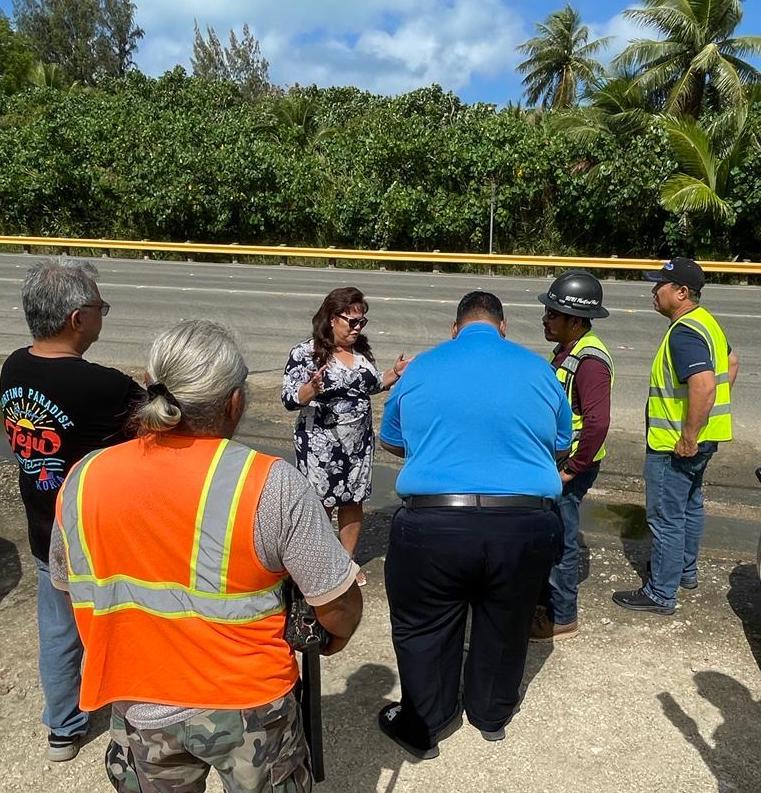
Celina Roberto Babauta convinced the delegates from legislatures throughout the Pacific to support a pooled medical insurance concept that would provide access to medical care for Pacific Islanders without coverage.
If the governments of the CNMI, Guam, Federated States of Micronesia, Palau, Republic of the Marshall Islands, Nauru, Kiribati, American Samoa, and Hawaii – after a period of due diligence – each pass laws that will allow a health insurance pool, where the islands’ residents can purchase coverage, then the region may be able to benefit from a universal healthcare system, according to Ms. Babauta, who is a member of the CNMI Senate.
Her proposal was made to the 40th General Assembly of the Association of Pacific Island Legislatures last month in the form of APIL Resolution No. 40-GA-08. Ms. Babauta is not a formal delegate to the APIL, but personally paid her way to participate in the proceedings and to propose the venture. The CNMI’s APIL delegates did co-sponsor her resolution, she said.
The senator based her idea on the military’s TRICARE system. Ms. Babauta is a military wife.
“The military health insurance commonly known as TRICARE is an excellent model for our region. Whatever locale a service member is stationed in, whether in Germany, Italy or the United States, they have global healthcare coverage,” she said in a news release. “Similarly, if this proposed program were implemented, whether you are in Palau, Marshall Islands or the CNMI you will have the coverage you opt for.”
The proposal is conceptual and does not yet have the backing of a financial feasibility study in its early stages. However, this concept is the resurrection of a discussion former Guam speaker Judith Won Pat brought to the attention of regional leaders last decade before she left office.
Among the arguments for a pooled regional system is the possibility – through economies of scale – to provide coverage at affordable premiums.
“A service member on active duty, is paying a monthly premium of $9.00 for health insurance for their family on TRICARE PRIME which is the highest option available,” Ms. Babauta said. “Children are covered until 23 years old provided, that they are enrolled in college on a full-time basis. Now, bring that concept to our entire region and I am confident that everyone will see a dramatic savings in their cost of healthcare insurance. That is what I hope to achieve through this resolution.”
According to her news release:
“With the funding shortfall for the Group Health and Life Insurance (GHLI) in the CNMI budget, this is one of the solutions to the increasing trend of healthcare spending while addressing our shared challenges in the region. I mean let’s face it, spending for healthcare has been increasing long before the COVID-19 pandemic,” said Babauta.
Current system is unsustainable
The CNMI Government pays for 100% of the retiree’s premiums for an annual total of $19 million and a percentage of the active employee’s premiums amounting to approximately $11 million per year. “Our government cannot sustain this overhead without finding alternatives to alleviate the financial pressure.” Senator Babauta, “hopes to make access to healthcare for our Micronesian, and to a greater extent, our APIL region attainable, by bridging the gap through a universal coverage similar to TRICARE and sharing the cost of healthcare.” The resolution was well received and adopted on October 19, 2023 by the full body.




2 Comments
Russ Mason
11/07/2023 at 11:50 AM
For those without Medicaid this is a positive step. I sure hope it will be successful!
elkapitan
11/14/2023 at 8:53 AM
This article in regards to TRI CARE are has a lot of miss info, example, “Active duty personnel DO NOT pay any out of pocket health care costs.
Also the cost of TRI CARE costs the eligable Vets over $300 a month. As does Social Security Medicare. There are two plans under SSA available, part A and part B. The VA used to pay for the part B for many of us with service connected dissabilities..
I do not know if the VA still does pay for this as I have never attempted to use it. (I cannot afford any of this)
There is much in this article that Babauta and other have not researched